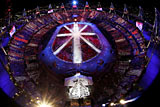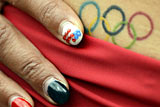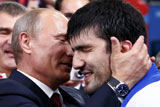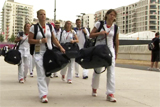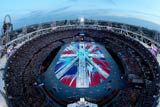
Sailing
Updated: 2012-05-16 11:30:13
(london2012.com)
|
|||||||||||
The waters of Weymouth Bay and Portland Harbor play host to 10 exhilarating Sailing events. Mastery over ever-changing conditions on open water requires skill and nerve.
Both will be essential for competitors in the Sailing events at London 2012 over 14 days of competition that should offer plenty of excitement and drama in the beautiful but testing waters of Weymouth Bay, on the south coast of England.
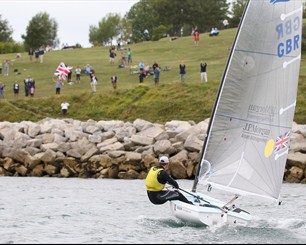
Competition dates
July 29?- Aug 11
Competition venue
Weymouth and Portland, Dorset
Number of medal events
10 - six for men, four for women -?will range from dinghies and keelboats to windsurfing boards.
Number of competitors
380 (237 men and 143 women). Each country is limited to one boat in each event.
History of Sailing at the Olympics
Sailing made its Olympic debut in Paris 1900 with both men's and women's competitions. With the exception of St Louis 1904, the sport has appeared at every Olympic Games since.
The basics
Each event consists of a series of races. With the exception of the women's Match Racing event, points in each race are awarded according to position: the winner gets one point, the second-placed finisher scores two, and so on. The final race is called the medal race, for which points are doubled. Following the medal race, the individual or crew with the fewest total points is declared the winner.
Competition format
Sailing races at these Games fall into two basic categories:
Fleet races
Events include men's and women's Two Person Dinghy (470), men's and women's Windsurfer (RS:X), men's Keelboat (Star), men's Skiff (49er), men's One Person Dinghy, Heavyweight (Finn), men's One Person Dinghy (Laser) and women's One Person Dinghy (Laser Radial).
In fleet racing, each event has a series of races. Points are awarded in each race: first scores one point, second scores two points, etc.
After 10 races (15 races in the Skiff event), points from the worst race are discarded. The remaining points are added together.
The 10 best athletes/crews then advance to the medal race. Points are doubled, so first place gets two points, second gets four, etc. The points total after the medal race determines the placings. The athlete/crew with the lowest number of points is the winner.
Match racing
The women's Elliot 6m event starts with a round-robin stage, where 12 crews race against each other, with the winner of each race getting one point and a half-point awarded to each crew in the event of a dead heat.
The best eight crews progress to the knockout stage, where crews race each other in a series of races. Each series is won by the first crew to reach three points.
The main difference to fleet racing is that only two boats ever race against each other, so a different set of tactics are required by the crew and helm. Pure boat speed can win you a fleet race but quick thinking and tactical judgment are required to master a match race.
Officials
Running the Olympic Sailing events is a highly complex operation. Officials will include equipment inspectors - ensuring all equipment is within the rules of the class and the competition; international judges - making decisions on rules questions and applying penalties when necessary; international race officers - ensuring all races are run fairly and within the rules of the competition; and international umpires - making on-the-water penalty decisions.
Keys to success
Sailing is both a technical and tactical sport. Athletes need to be masters of their boats, getting the most out of them in terms of speed and performance. They must also be able to adjust to changing conditions, and race tactically to ensure the best position at each stage in the race.
Breaking the rules
Although each boat class has its own rules, there are fundamental rules of Sailing and athletes can be penalised for breaking them. These include observing the correct right of way and obstruction rules while on the water, false starting, or touching a mark. Penalties include having to take an extra one or two turns (turning your boat 360 or 720 degrees through the wind), or receiving a scoring penalty.
Jargon buster
Fleet race -?Three or more competitors racing against each other.
Match race - Two competitors racing head to head, with slightly different racing rules that allow aggressive tactics.
Port -?When looking forwards, the left-hand side of the craft.
Starboard -?When looking forwards, the right-hand side of the craft.
Tacking -?When a boat passes through the eye of the wind in order to change direction. Because it is impossible to sail directly into the wind, sailing boats must zig-zag.
Medal Count |
||||
| 1 | 46 | 29 | 29 | |
| 2 | 38 | 27 | 22 | |
| 3 | 29 | 17 | 19 | |
| 4 | 24 | 25 | 33 | |
| 5 | 13 | 8 | 7 | |
| 6 | 11 | 19 | 14 | |
